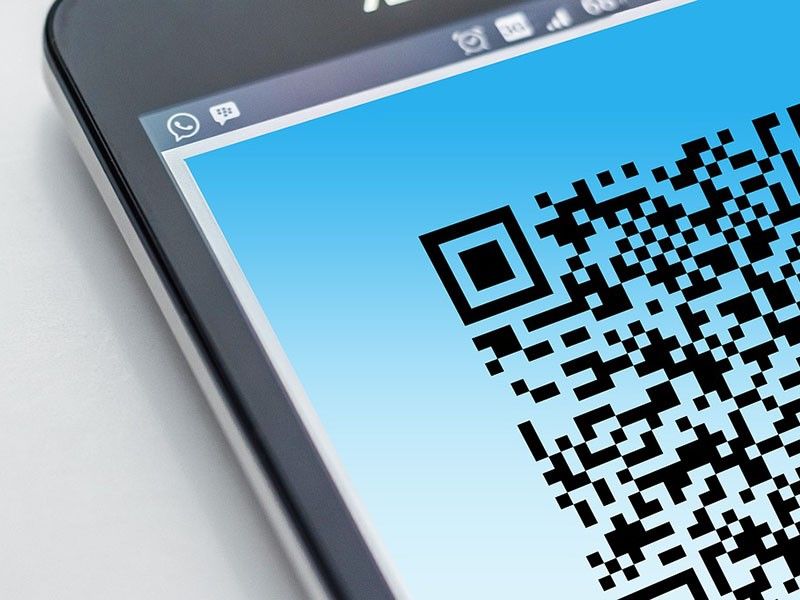Cash may be king, but e-wallets are coming for the crown

In the Philippines, 51.2 million adults do not have bank accounts. But the country's 152.4 million active mobile connections is equivalent to 138.2% of its total population. Indeed, electronic wallets, also known as e-wallets and e-cash, have great potential to expand financial inclusion in the country and bring financial services to millions of Filipinos.
For the uninitiated, an e-wallet is an electronic device, online service, or software program that allows you to store your money digitally. Often, all users need to get started with an e-wallet is a mobile number, and they will be able to cash-in, pay bills, buy load and receive international remittance. In addition, by submitting an ID, users can get verified and increase their wallet limits, make ATM withdrawals and gain access to even more convenient services.
Don't get me wrong, while the use of e-wallets may be growing; cash is still king in the Philippines. According to the Bangko Sentral ng Pilipinas (BSP) a majority of Filipino adults remain unbanked. According to the 2019 financial inclusion survey report of the BSP, the top reason for this is simply the lack of funds. However, the survey also found that 27% and 26% of Filipinos cited the lack of functional need and lack of documentary requirements are other top reasons for being unbanked, respectively.
Though the number of unbanked Filipinos looms large, global trends show that digital financial services— including digital payments such as e-wallets— are fast gaining traction and well-positioned to solve financial inclusion challenges.
Even before the pandemic, the e-Conomy SEA 2019 report from Bain & Company, Google and Temasek found that digital financial services had already reached an "inflection point" in the Southeast Asian region. According to the study conducted before the COVID-19 pandemic, digital payments growth in the region was in the double-digits and was expected to cross $1 trillion by 2025. Moreover, in particular, e-wallet payments are poised to grow even faster and were expected to grow more than five-fold from $22 billion in 2019, to exceed $114 billion by 2025.
Indeed, since the pandemic hit, the growth and potential of digital payments have probably only grown. COVID-19 fundamentally changed our behavior. It has changed the way we work, go to school, shop, and pay bills. It has also changed the way we interact with people and public spaces. It's not hard to imagine how these behavioral changes have led to rapid changes in our spending and payment behavior.
Without a doubt, these changes are felt even more here in the Philippines due to the lockdowns that have been in place since March 2020. This is reflected, for instance, in the BSP reports that as a result of the pandemic, the use of digital payments to the government had spiked by more than 5,000% during the pandemic.
Similarly, it was also reported late last year by Kantar Research that cash transactions dropped and e-wallets use rose, "indicating a massive shift from one payment method to another."
Perhaps a good way to understand how rapidly the country is shifting to and adopting e-wallets is by looking at the growing number of GCash app users. Operated by Globe Telecom, GCash is the country's top financial app. In 2019, Gcash had 20 million users and 63,000 partner merchants. GCash now has 46 million users and 2.5 million partner merchants and social sellers; it averages P300 billion transactions per month, has over 13 million log-ins per day, and is on track to triple its 2020 performance.
As a matter of fact, a recent study from Kaspersky found that the Philippines leads the Asia Pacific region in e-wallet adoption. The "Mapping a secure path for the future of digital payments in APAC" bared that 37% percent of the Philippines e-wallet users only started using digital payments during the pandemic. This e-wallet adoption rate is much faster than India's 23%, Australia's 15%, Vietnam's 14%, and Indonesia's and Thailand's 13%.
The study, which also asked respondents for their reasons for using digital payment methods, found that 45% said digital payment platforms allow them to stick to social distancing; 36% said it was the only way to do monetary transactions during lockdowns; while 29% of them cited the improved security of digital gateways since the pandemic hit last year.
According to Chris Connell, managing director for Asia Pacific at Kaspersky, "Data from our fresh research showed that cash is still king, at least for now, in APAC with 70% of the respondents still using physical notes for their day-to-day transactions." "However, mobile payment and mobile banking applications are not far behind with 58% and 52% users utilizing these platforms at least once a week up to more than once a day for their finance-related tasks," he added.
Interestingly, the report also found that 82 percent of users use smartphones to make these digital payments.
"From these solid statistics, we can infer that the pandemic has triggered more people to dip their toes into the digital economy, which may fully dethrone cash use here in the next three to five years," Connell said.
With the country's COVID-19 response practically stagnant and lockdown measures seemingly cemented in place, shifting away from traditional payment methods like cash makes increasing sense for many Filipinos.
To riff off the proverb, it seems this time, necessity is the mother of adoption. And while the pandemic drives the current rapid rate of digital payment adoption, more and more Filipinos are beginning to experience and appreciate the benefits of technology-enabled financial services each day.
Paco Pangalangan is the executive director of think tank Stratbase ADR Institute.
- Latest
























